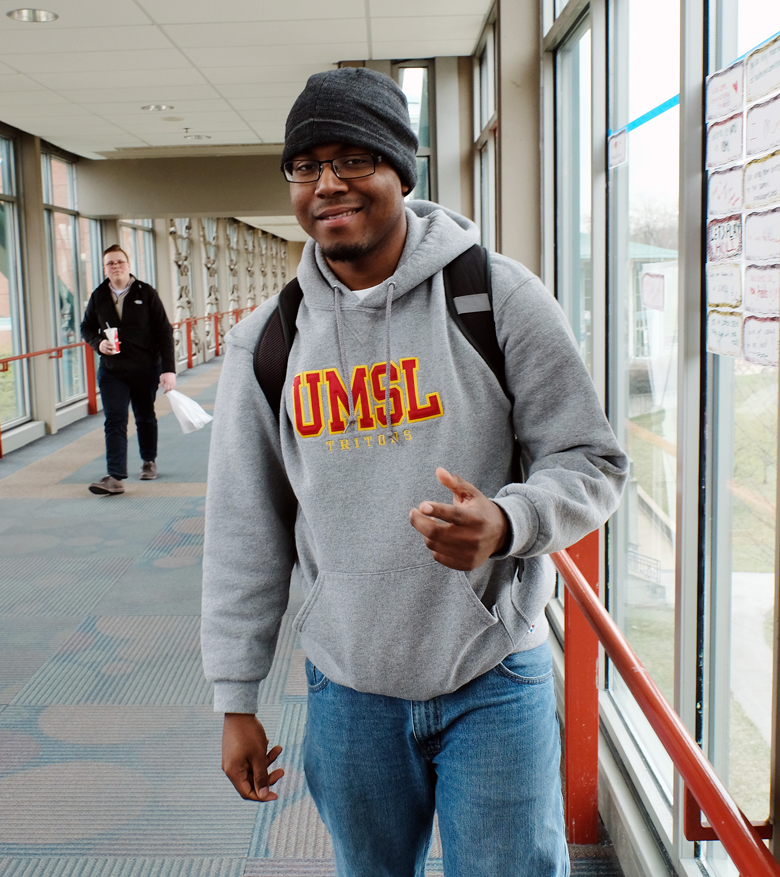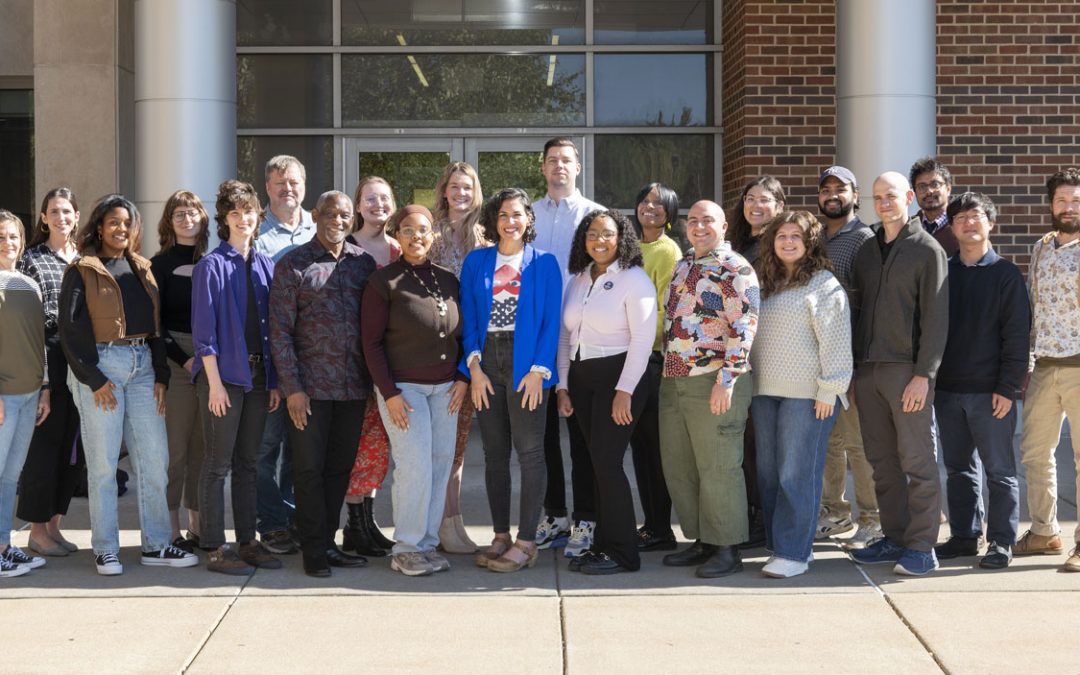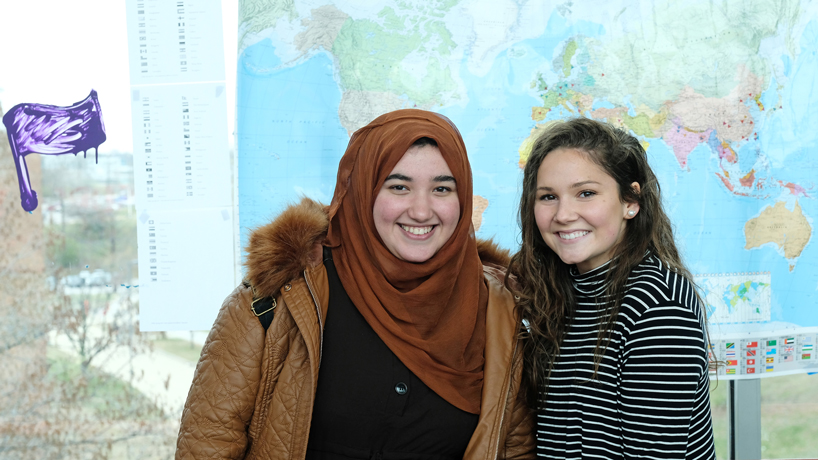
Freshman Sahar Abdellatif (at left), who hails from Cairo, Egypt, and sophomore Haley Binder joined the collaborative effort, which culminated in hundreds of affirming messages and interactions along the bridge to the Millennium Student Center on March 16. (Photos by August Jennewein)
“We are happy you’re here.”
“I remember being a visitor in St. Louis many years ago.”
“The more we learn about each other, the better.”
As Marowa Alzori read through countless handwritten notes on display along a wall of windows last Thursday at the University of Missouri–St. Louis, she felt welcomed, protected and excited.
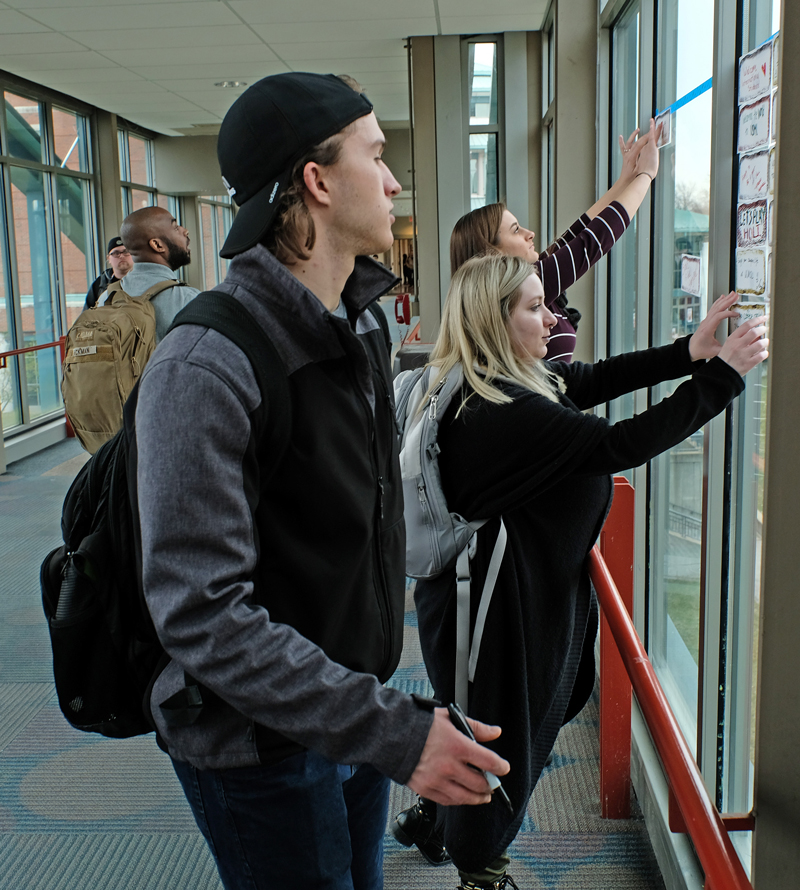
“Bienvenidas.” “You are loved, appreciated and wanted!” “You have a home here at UMSL.” As passersby headed to and from class last Thursday, many took the time to write messages on cardstock “bricks” provided by student organizations – and to read what others shared.
Alzori, who is from Saudi Arabia, wasn’t too sure what to expect that morning as she and a handful of other UMSL students began constructing what they termed a “bridge on the bridge” to the Millennium Student Center and encouraged passersby to join in. But one by one, people happily added their voices to the show of solidarity with those on campus whose places of origin are outside of the U.S.
Soon the passageway was buzzing with conversation – and with messages full of kindness, encouragement and fun.
“This shows us – the international students – that we are important, supported and part of UMSL’s community,” said Alzori, a computer science major and current president of the International Students Club. “It makes us feel safe and welcomed by our fellow students and staff and faculty members.”
In the works for several weeks leading up to the culminating activity on the bridge March 16, the effort was precipitated by an informal conversation between several students and Birgit Noll, chair of the Department of Language and Cultural Studies, in the wake of recent executive orders related to immigration.
“There seemed to be a lot of anxiety, and I said, ‘Let’s do something to make international students feel more at home,’” Noll said. “The next thing I knew, students like Amanda [Rawls] and Marowa and others were brainstorming ideas and printing these cards that looked like bricks.
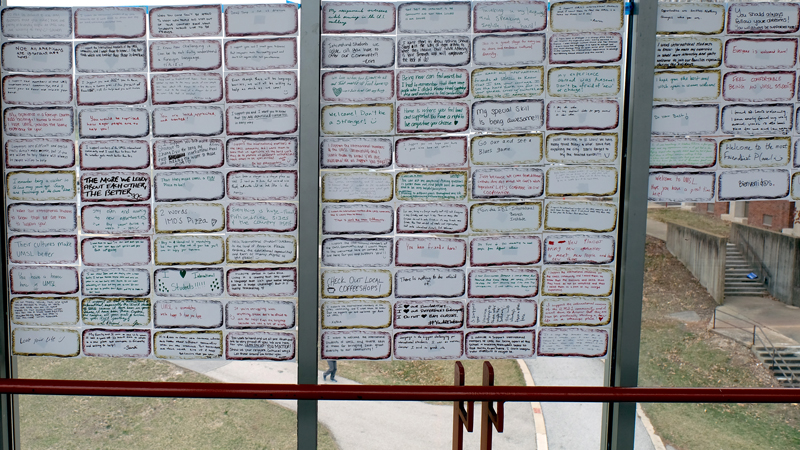
The messages ranged from the humorous and succinct to the more serious and extensive. Click on the photo for a closer look.
“What I saw on the bridge the other day just really inspired me, because it brought together students from all walks of life, and they all wrote very caring and eloquent things they wanted to say. That speaks very highly of our students.”
Noll was also impressed by the student-driven collaboration involved from start to finish.
Rawls, who is double majoring in French and computer science, has been helping get a new student group – Lingua – off the ground, and the Lingua group met with several more established student organizations to bring the effort to fruition.
In the end, support came from a wide range of UMSL folks eager to help, including the International Friends, the Hispanic Latina Association, Alzori and ISC, Latino Recruitment and Retention, Sigma Tau Gamma, the Office of Diversity and Inclusion, Gender Studies, the Department of Language and Cultural Studies, the Student Electronic Media Professionals’ Association, the Graduate Writers Association and the University Program Board.
“We have all these groups to thank for coming up with the original ideas and for support for the ‘bridge on the bridge’ and the event that took place later in the day in the Fireside Lounge,” Rawls said. “The goal was to raise awareness on the bridge and provide a way to immediately act on that awareness at the Power of Language.”
The students also received a lot of encouragement and assistance from Counseling Services and from faculty members who circulated some of the cardstock “bricks” for campus community members to write messages on ahead of time.
“Lynn Staley suggested that, and it was a tremendous success for a first-time event,” Rawls said. “We distributed over 500 cards to faculty, and Marowa distributed cards to various advising offices. I think that was a great way to get started, as those people passing on the bridge could see right from the start that there is a lot of support for the international community on campus.”
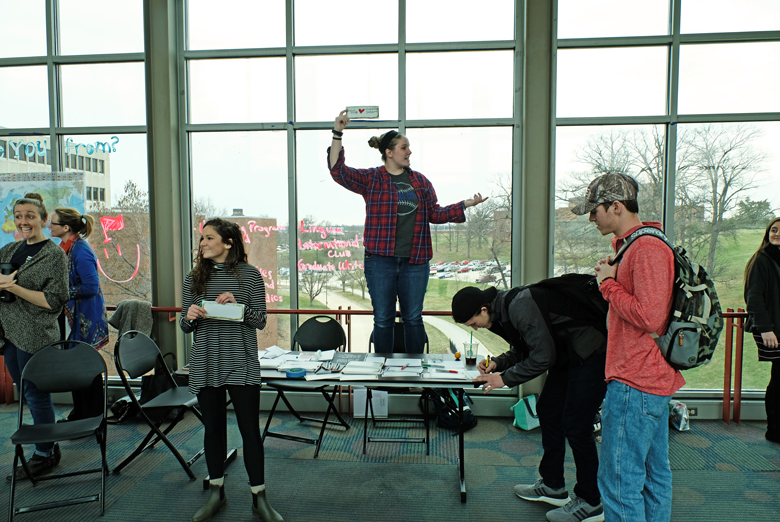
Miranda Durr (center) and other student organizers worked collaboratively to bring the effort to fruition. A number of UMSL faculty and staff also lent support, helping them distribute and collect some of the cardstock “bricks” ahead of time.
A mix of everything from humor, to suggestions for exploring St. Louis, to concern and support was expressed – in a number of different languages – on the “bricks” adorning the bridge by day’s end.
“Most of all, I think there was a great deal of love and compassion,” Rawls said.
Looking ahead, she hopes to see even more support and inclusion of international students at UMSL among her fellow Tritons.
“No amount of support and resources provided by the university will take the place of friendship,” Rawls added. “It’s up to us to make people feel welcome.
“We can do that by inviting them to join us for lunch, walking with them between classes, including them in our study groups, talking to them in class, asking them about their cultures, their languages, and their story – and most importantly listening to their stories and recognizing their contributions.”

